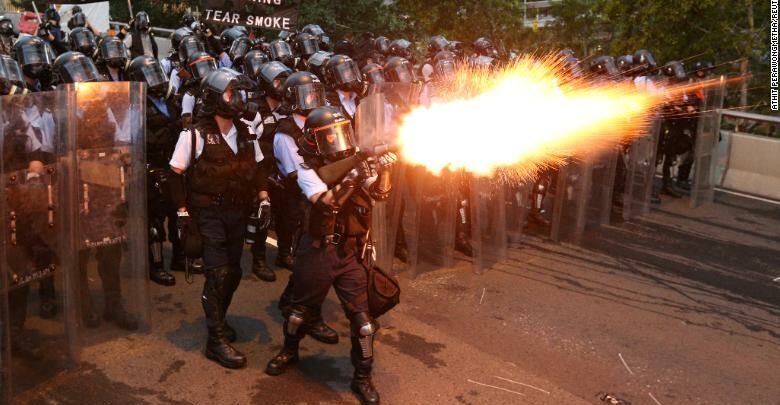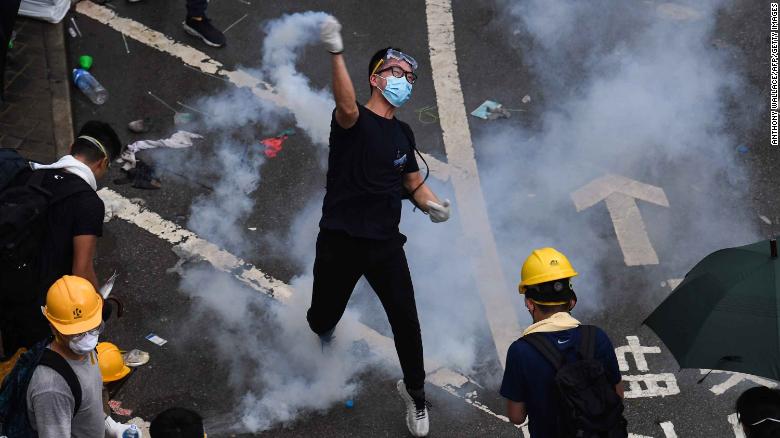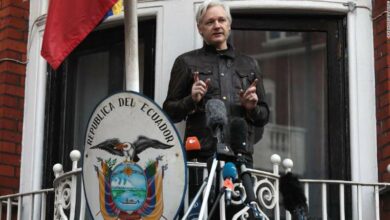Beijing walks a thin line as Hong Kong erupts at the worst possible time

Hong Kong (CNN)This week’s violent protests in Hong Kong against a controversial extradition bill couldn’t come at a worse time for China’s stability-obsessed Communist Party and its leader, President Xi Jinping.Facing a weakening economy, and with trade tensions with the United States at an all-time high, experts say Xi is under pressure to deliver on the enormous power he’s amassed since coming to power in late 2012.Tens of thousands of mostly young protestors took to the streets again on Wednesday, temporarily shutting down Hong Kong’s Legislative Council and surrounding streets, and forcing a delay in the proposed reading of the bill.At least 79 people were injured throughout the day, as an estimated 5,000 riot police fired rubber bullets and tear gas at protesters.Experts say Beijing doesn’t want to be seen to back down on the extradition law but can’t afford to inflame matters with a serious crackdown. The dilemma has left the normally blunt Xi administration with a narrow line to walk to avoid escalating the Hong Kong crisis.The Chinese government response Wednesday was defiant in both state media and official government statements.”It is lawlessness that will hurt Hong Kong, not the proposed amendments to its fugitive law,” an editorial in the state-run China Daily said.But Willy Lam, an adjunct professor at the Chinese University of Hong Kong and a longtime analyst of Chinese politics, said the extradition crisis has no clear or easy solution for Beijing.”A ferocious confrontation is shaping up between the will of the Hong Kong people and the Xi Jinping administration, (which is) determined to be the arbiter of things in Hong Kong,” he said.

Beijing stands by law
The protests were sparked by new laws, proposed by the pro-Beijing Hong Kong administration, which would allow fugitives to be extradited to mainland China from Hong Kong.Many protesters say they are worried the laws could be used to send political activists and dissidents from the city to China to face harsher punishments.Publicly, the Chinese government has offered its support to Hong Kong Chief Executive Carrie Lam in her attempts to pass the bill.
“The central government firmly supports the Hong Kong SAR government in advancing the amendment to the two ordinances,” Chinese Foreign Ministry spokesman Geng Shuang said Wednesday.But expert Lam said while the central government in Beijing couldn’t be seen to back down, they would be wary of the possibility that ongoing protests could damage Hong Kong’s business sector at a time of growing pressure on China’s economy.Hong Kong is allowed economic freedoms that are restricted to the rest of the country, which, tied with an unbiased court system left over from the UK colonial period, have led to many large Western businesses basing their lucrative China operations out of the city.There is no end in sight to the trade war between the US and China after negotiations collapsed in early May and new tariffs were imposed by both sides on hundreds of billions of dollars of exports.The Chinese government maintains it is not afraid of a trade war but there are already signs that the economy is continuing to slow. As more US businesses begin to look at investments outside of China, Hong Kong’s role as the country’s most economically liberal city is more important than ever.”They need to give way to the fact that the Hong Kong economy will suffer tremendously, and hence the Chinese economy, if the protests continue,” said Lam.

